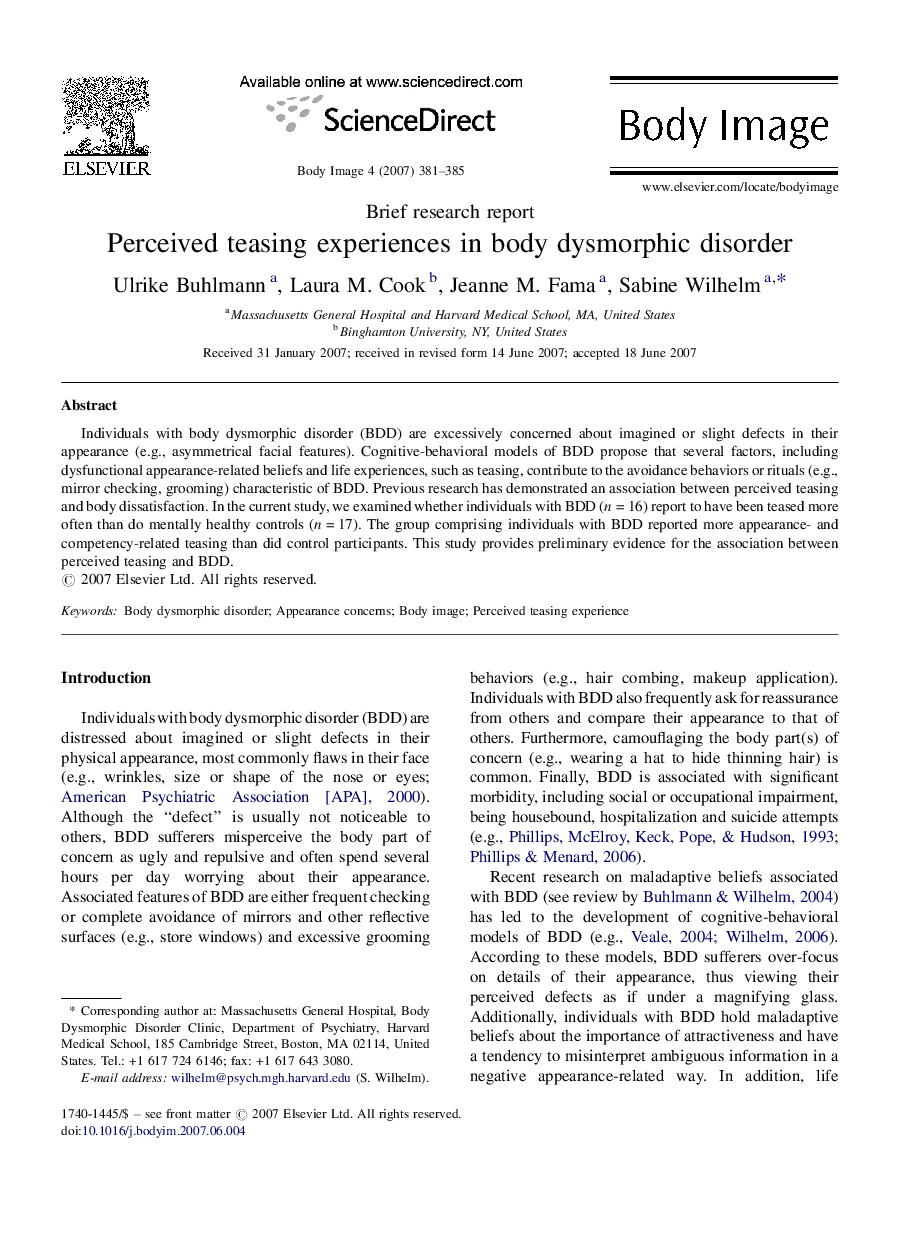| Article ID | Journal | Published Year | Pages | File Type |
|---|---|---|---|---|
| 903346 | Body Image | 2007 | 5 Pages |
Individuals with body dysmorphic disorder (BDD) are excessively concerned about imagined or slight defects in their appearance (e.g., asymmetrical facial features). Cognitive-behavioral models of BDD propose that several factors, including dysfunctional appearance-related beliefs and life experiences, such as teasing, contribute to the avoidance behaviors or rituals (e.g., mirror checking, grooming) characteristic of BDD. Previous research has demonstrated an association between perceived teasing and body dissatisfaction. In the current study, we examined whether individuals with BDD (n = 16) report to have been teased more often than do mentally healthy controls (n = 17). The group comprising individuals with BDD reported more appearance- and competency-related teasing than did control participants. This study provides preliminary evidence for the association between perceived teasing and BDD.
